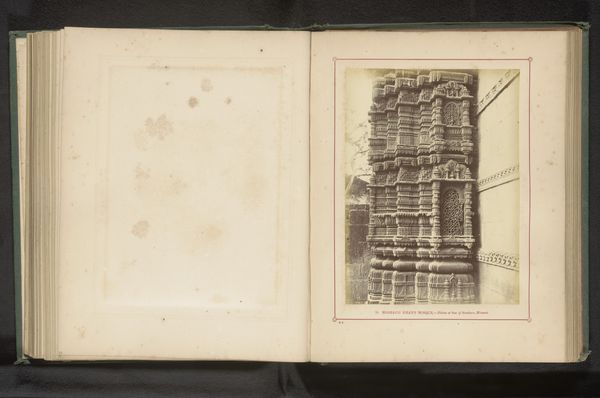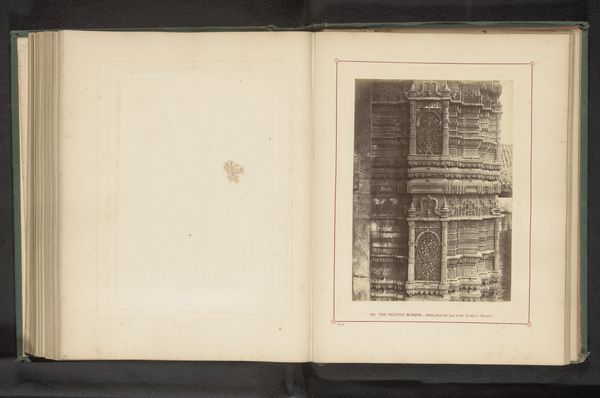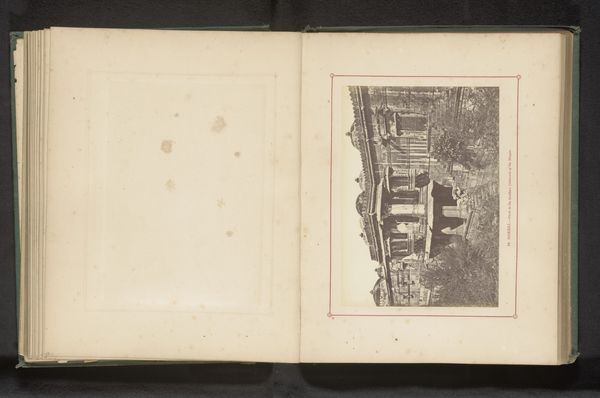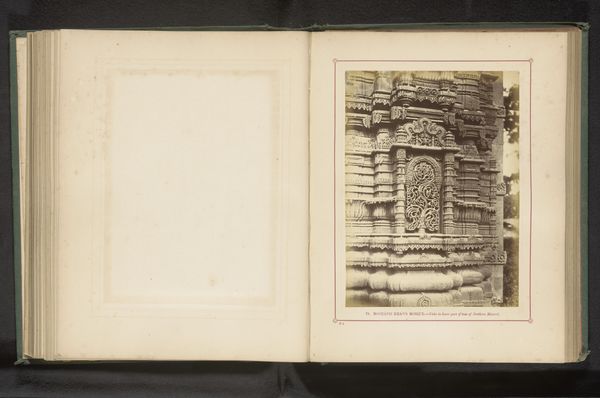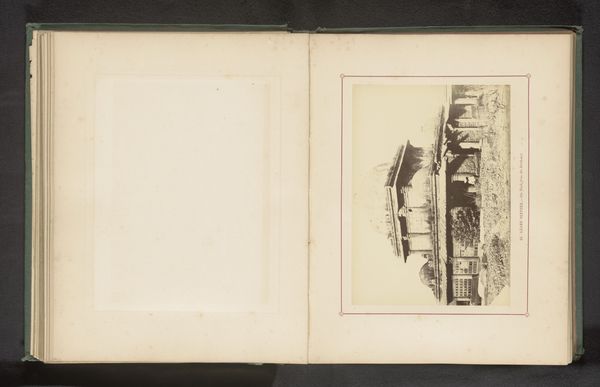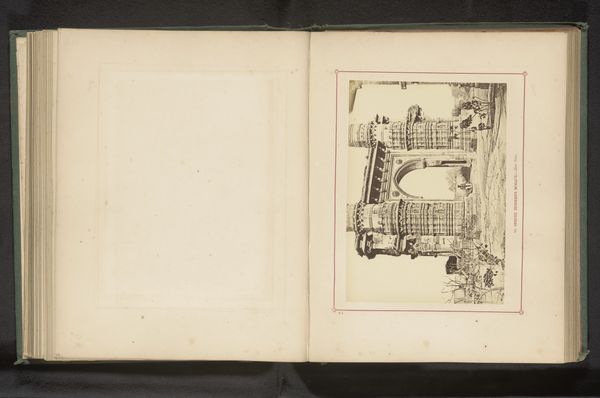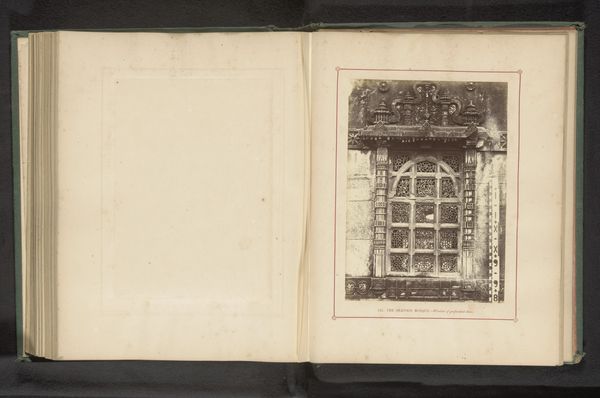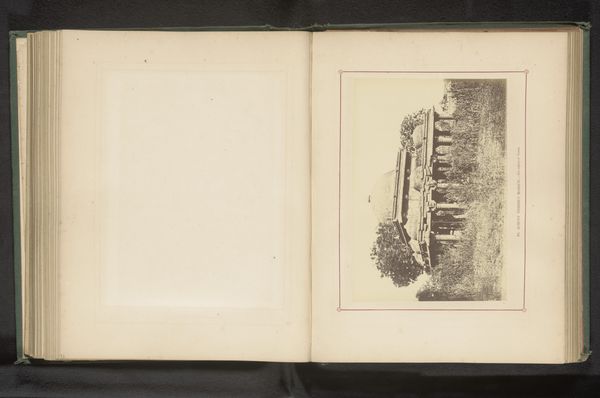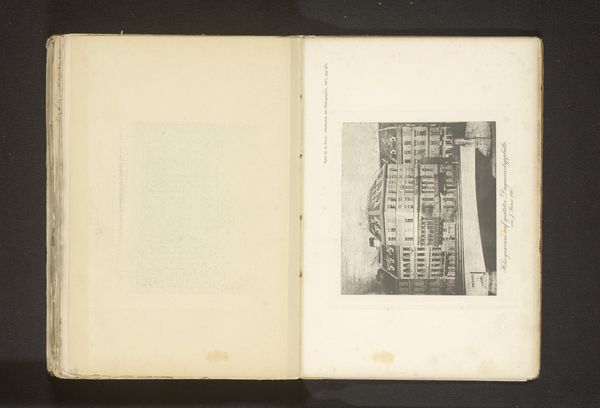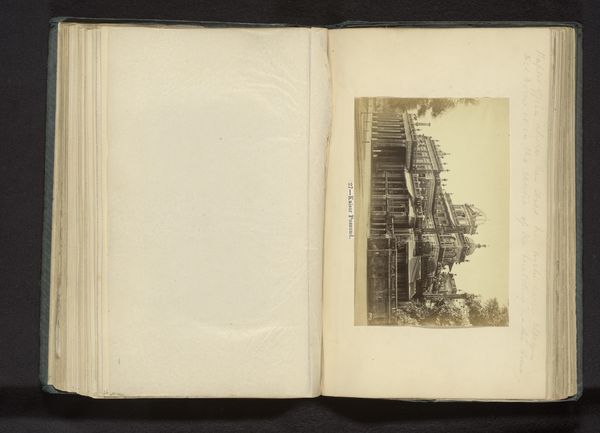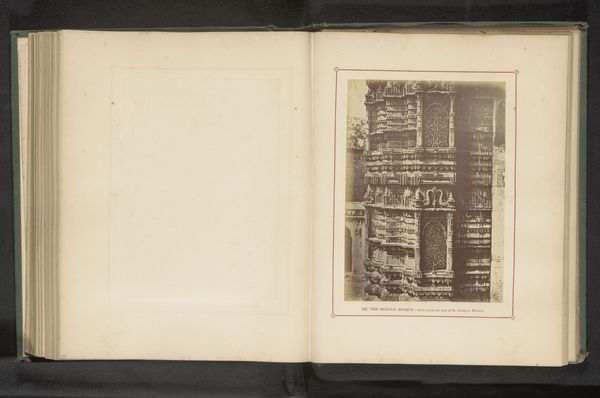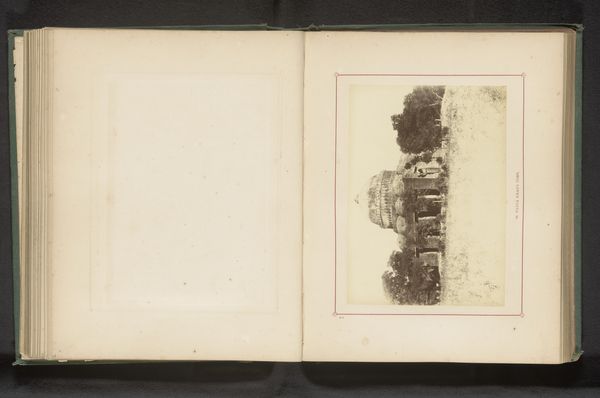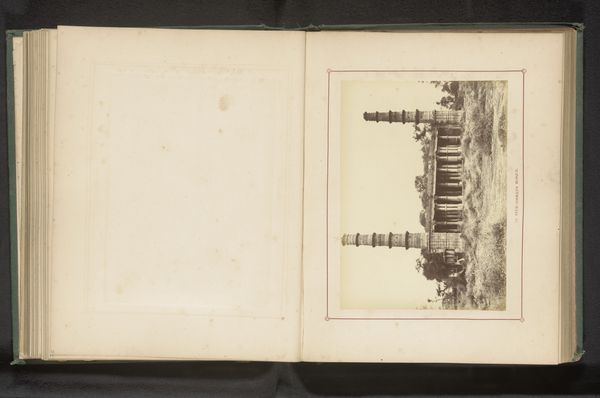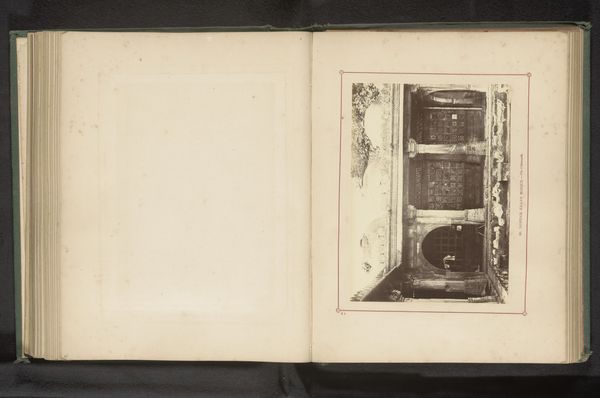
print, photography, architecture
#
aged paper
#
toned paper
#
homemade paper
# print
#
sketch book
#
hardpaper
#
photography
#
personal sketchbook
#
journal
#
sketchbook drawing
#
islamic-art
#
storyboard and sketchbook work
#
sketchbook art
#
architecture
Dimensions: height 188 mm, width 136 mm
Copyright: Rijks Museum: Open Domain
Editor: This photograph, entitled "Decoration of a Minaret of the Muhafiz Khan Mosque in Ahmedabad," was taken before 1866 by Thomas Biggs. It's an image held within the pages of what appears to be a sketchbook. I find the density of detail quite mesmerizing. How do you interpret this work, especially given its likely place within a larger travel journal? Curator: The placement within a sketchbook is significant. Think of a portable memory palace. The minaret, captured with such detail, isn’t just a record of a place; it's a repository of cultural and religious memory. Look closely – do you see the layered tiers? Each band of decoration acts as a visual symbol, whispering stories of faith and artistry passed down through generations. The light and shadow, carefully rendered, even suggest a haptic sense of texture and depth that may speak to the divine's immanence within everyday life. Editor: So, you see the sketchbook itself as part of the artwork's meaning, a container for personal reflection and broader cultural narratives? Curator: Precisely. Consider the cultural context: Ahmedabad, a city steeped in Islamic and Indian traditions. Minarets are not merely architectural features, but potent symbols of faith, power, and community identity. The photographer, likely a colonial outsider, is engaging with a pre-existing visual language, perhaps even appropriating it. How might that influence your interpretation of its cultural weight? Editor: It introduces a layer of complexity, the observer's perspective impacting the image's narrative. It's not just about what's depicted, but also about *who* is doing the depicting. Curator: Indeed. Every image, every symbol, carries a weight, both intended and unforeseen. The challenge is understanding those layers, acknowledging their power to shape our understanding of the world. Editor: It's fascinating to consider the intersection of personal memory, cultural symbols, and colonial perspectives, all captured in this single photograph within a sketchbook. Curator: Precisely. It leaves me thinking about how we carry those cultural and religious markers with us, internally, even today.
Comments
No comments
Be the first to comment and join the conversation on the ultimate creative platform.
